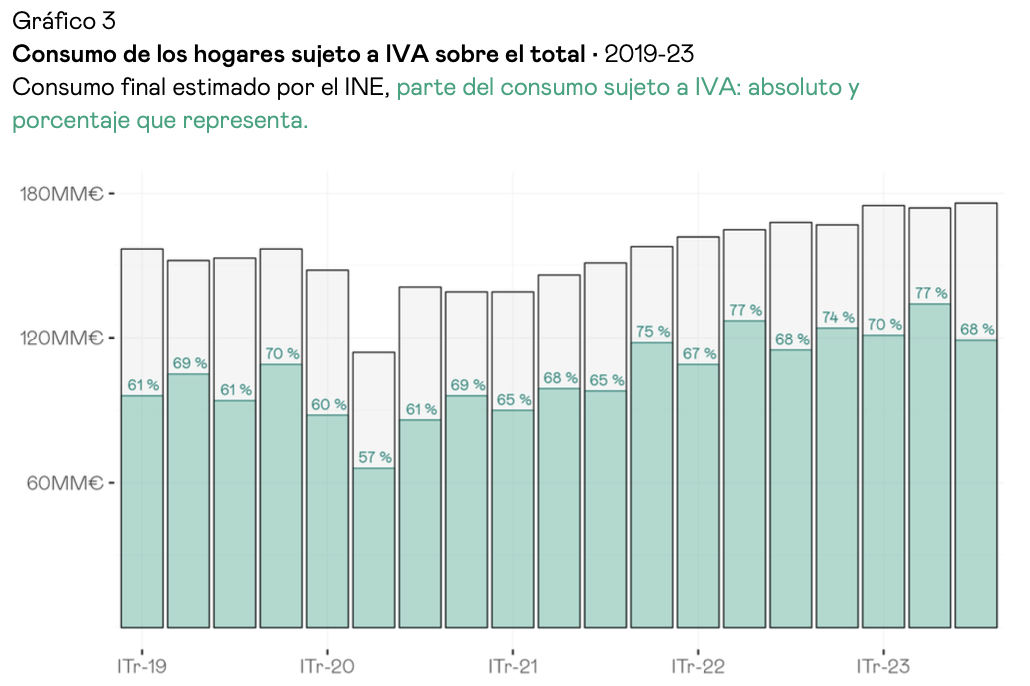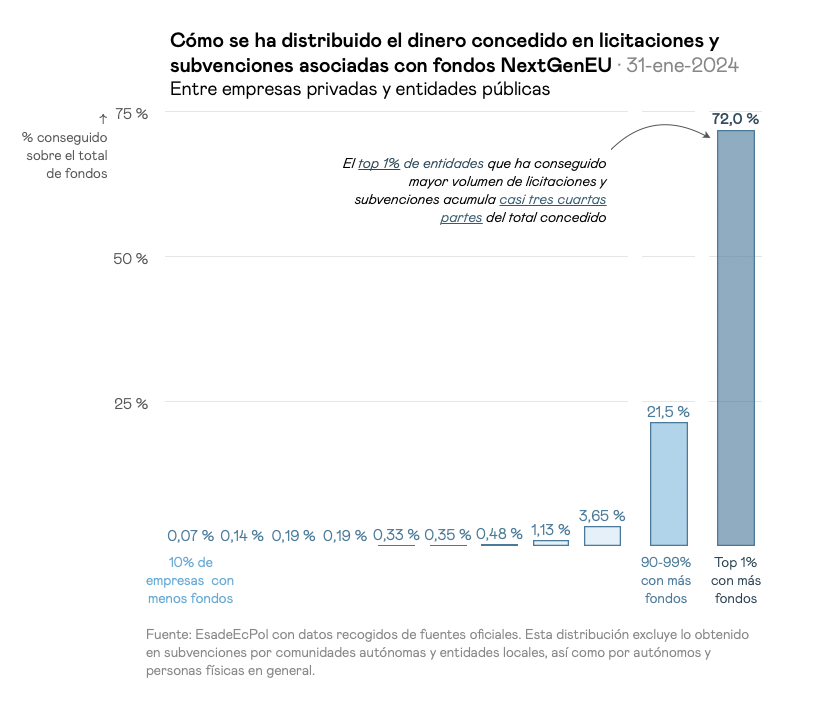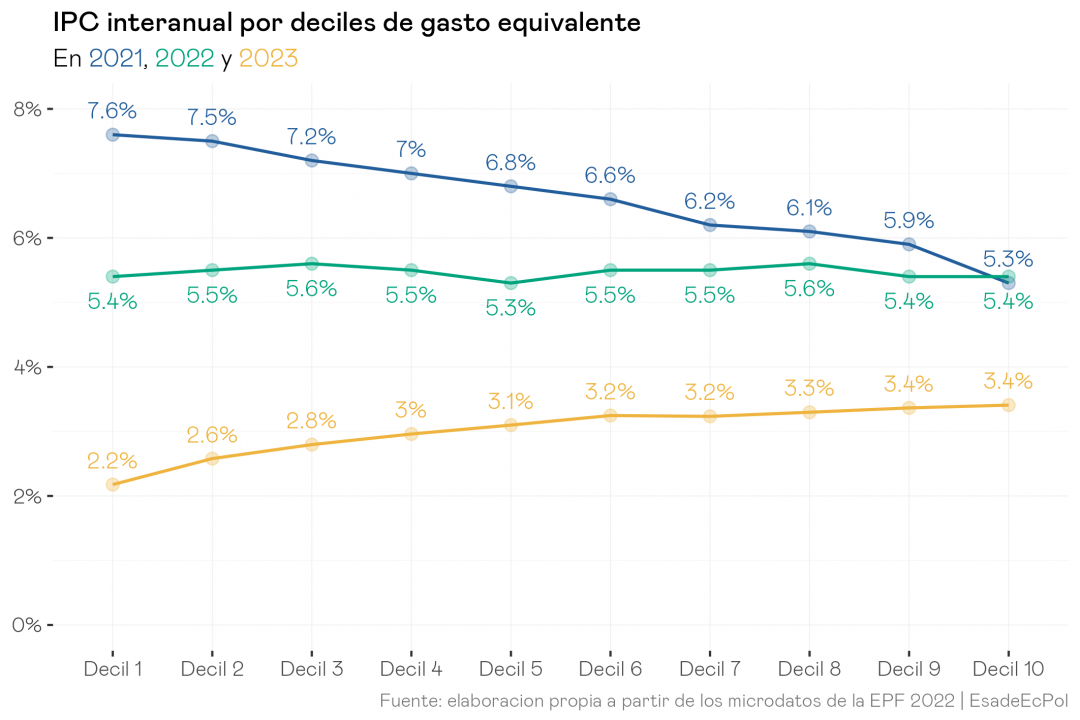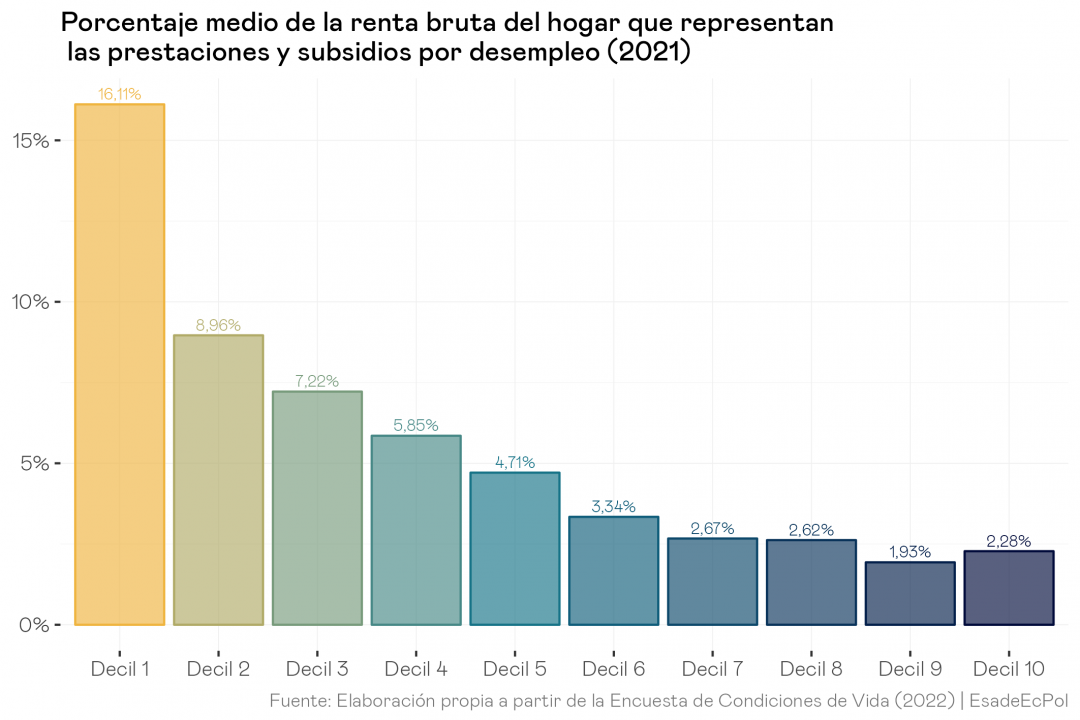Macro & fiscal policy
Effects of the ‘Verano Joven’ discounts on Spanish High-Speed Rail
On June 15, 2023, the government launched a 50% subsidy on the price of high-speed tickets (up to a maximum of €30 bonus), aimed at young people. The measure was aimed at young people between 18 and 30 years of age and was explicitly intended to improve their access to this type of travel. The […]
Javier Martínez Santos, Ángel Martínez
19 Dec, 2024
Read more
11 OCT, 202410:30 h
On Wednesday, October 11, at 10:30 a.m., Pablo Bustinduy, Minister of Social Rights, held an in-person conversation with Toni Roldán, Director of EsadeEcPol. They discussed the care agenda and the challenges facing our welfare systems.

12 Sep, 2024
Análisis publicado junto a Oxfam Intermón. Ideas clave En 2022, casi 8 de cada 10 beneficiarios potenciales no recibe el bono social eléctrico: su tasa de cobertura está en 24,5%, siendo especialmente alta para familias numerosas (45,5%). Una buena parte de los que sí se benefician del bono social no son familias vulnerables: entre los […]

18 SEP, 202412:30 h
El próximo miércoles 18 de septiembre a las 12:30h Carlos Cuerpo, Ministro de Economía, Comercio y Empresa, conversará con Toni Roldán, director de EsadeEcPol de manera presencial. Abordarán la actual coyuntura macroeconómica, las perspectivas a medio plazo, así como las reformas estructurales (hechas, en marcha o pendientes) y los retos a largo plazo que enfrenta […]
 Martin Sandbu & Toni Roldan
Martin Sandbu & Toni Roldan
9 SEP, 202411:00 - 12:00 h
Martin Sandbu is the European economic commentator for the Financial Times. In this conversation, Toni Roldán (director of EsadeEcPol) discusses with him the key economic challenges facing Western market economies and how they are deeply entrenched with the current wave of populist elections across democracies. Roldán and Sandbu build on Sandbu’s book, The Economics of […]

22 MAY, 2024
En la tercera edición del Foro de Fiscalidad de EsadeEcPol, celebrada ayer en Madrid, reunimos a un grupo destacado de expertos para abordar las cuestiones más importantes para la fiscalidad española, como quedó reflejado en la cobertura de El País, El Mundo, o ABC, entre otros muchos. Bajo la dirección de Francisco de la Torre […]

22 MAY, 2024
El miércoles 22 de mayo a las 10:00h tendrá lugar el III Foro de Fiscalidad de EsadeEcPol en Esade Madrid, contribuyendo al debate sobre los retos centrales de la fiscalidad en España con ideas rigurosas, basadas en la evidencia, y en propuestas viables. En el encuentro participarán personas expertas procedentes del mundo académico, practitioners y […]

21 Mar, 2024
In 2020, the fall in tax revenues exceeded the fall in GDP, with a probable growth of the underground economy in tandem with the decline in economic activity. In contrast, the growth in tax revenue between 2021 and 2023 exceeded forecasts, reaching above pre-pandemic levels. To explain this unexpected growth, this study considers the emergence […]
 Evolution of Next-Gen EU Funds in Spain
Evolution of Next-Gen EU Funds in Spain
18 Mar, 2024
Analyzing in detail the destination and pace at which the €80 billion that Spain has been allocated to date under the Next Generation EU Funds program remains a major challenge, even considering the mid-term assessment recently published by the European Commission on plan’s progress. The first and principal reason is that, unfortunately, there is no […]

6 FEB, 2024
Last Tuesday, February 6th, took place the presentation of our book ‘Un país posible: manual de reformas políticamente viables’ at the Bidebarrieta Library in Bilbao. The event, co-organized thanks to the impulse of Silván & Miracle, was attended by four of the authors: Toni Roldán, Lucas Gortazar, Sandra León and Pedro Linares, all of them […]

9 Jan, 2024
Key ideas → In 2021 the CPI of the poorest households was substantially higher than that of the richest households due to higher electricity prices. In 2022 it started to equalize, and in 2023 it has come full circle with an opposite picture: the CPI is lower for households with fewer resources. → The reason […]

5 Dec, 2023
The new legislature is opening a debate on the reform of the unemployment benefits and subsidies system, with apparently opposing views even within the government itself. Gathering in this brief the most relevant published evidence that identifies causal effects of recent reforms for Spain, allows to anticipate what effects reforms in this area might have: […]
 EcPol Talks: Aida Caldera y Jorge Galindo
EcPol Talks: Aida Caldera y Jorge Galindo
4 DEC, 2023
Aida Caldera, head of division in the OECD’s economics department, talks to Jorge Galindo, deputy director of EsadeEcPol, about the organization’s latest report analyzing the Spanish economy. They address its short-term resilience and how it contrasts with the worst medium- and long-term prospects, going in depth into its bottlenecks (productivity, debt) and how they condition […]


